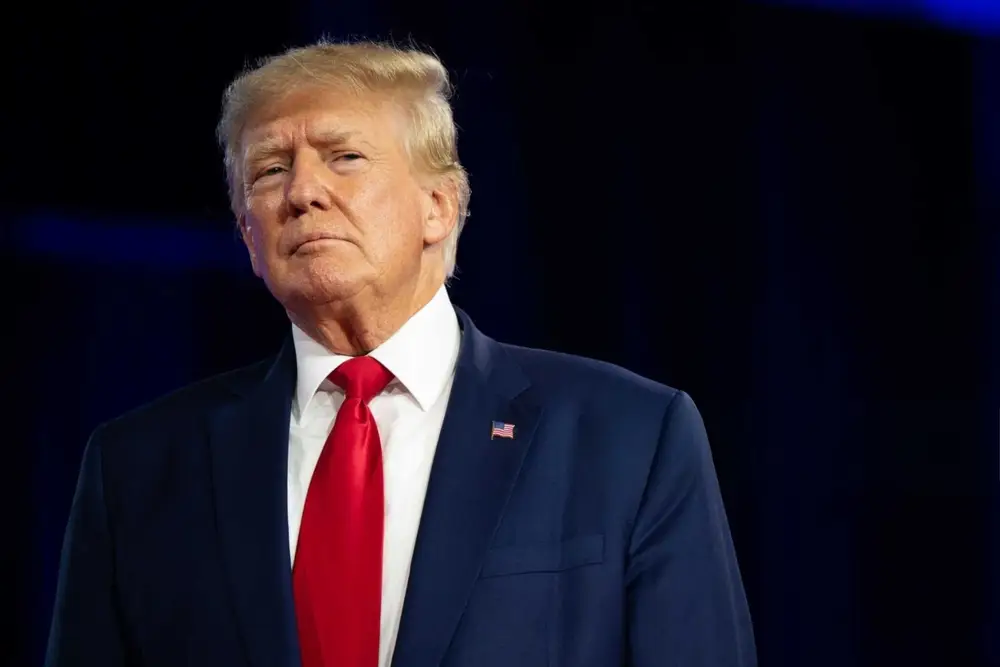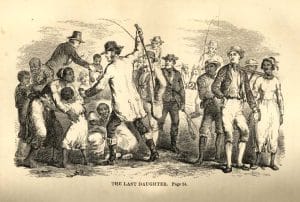When the Trump administration takes charge next year, what can Pennsylvanians expect when it comes to public education?
That’s a tough prediction to make. Unlike previous education secretary Betsy DeVos, Linda McMahon, the professional wrestling executive put in charge of the department of education, does not have much of a track record with education. And Trump’s stated policy objectives boil down to two goals which seemingly contradict each other: Reduce the amount of federal control over education while increasing the amount of federal control over education.
Ending the Department of Education
Conservatives have wanted to do away with the department since it was first formed. From Betsy DeVos to Project 2025, dismantling the department has been a stated—and unattained—goal. A bill to get rid of the department, proposed by Sen. Mike Rounds (R-SD), has begun its journey through Congress.
What most of these plans have in common is the intent to disperse many of the functions of the department to other arms of the government. The Rounds bill puts many functions of the department in other departments. That’s far easier than ending those programs, some of which, like Title I, pre-date the Carter-era creation of the department itself. That was, in fact, part of the point of the department—to create a one-stop shop for managing the various federal education programs.
So in many cases, the program would continue, just administered by a different department.
But many of these plans also target the two huge programs run by the department—Individuals with Disabilities Education Act (IDEA) and Title I. IDEA funding helps your school district afford mandated education for students with disabilities. Title I distributes funding for schools that serve students from low-income families. Together the programs amount to around $37 billion.
Proposals like Project 2025 call for those funds to be turned into block grants given to the states with no strings attached.
That means in our case that the money previously spent on students with special needs or schools with low-income populations could be spent on whatever whim is sweeping Harrisburg at the time. DeVos has argued that those block grants should be used to fund school voucher programs, turning money originally meant for students with special needs or few resources would instead be spent to subsidize private schools. The stringless block grants would mean total control of the federal funds would lie in the hands of legislators who are already under a court order to fix Pennsylvania’s inequitable and inadequate funding.
READ: The Donald Trump-Moms for Liberty-Heritage Foundation Project 2025 Alliance
That would just be the start.
Project 2025 calls for Title I money to be zeroed out within a few years, and the Rounds bill doesn’t mention it at all—in his version, it simply disappears.
There isn’t a district in Pennsylvania that would not miss that Title I money. Low income districts get millions of dollars in aid. Looking at 2020 figures: Reading schools get $15 million, Scranton$5 million,Harrisburg $9 million and Bethlehem $5 million.
Bucks County would feel it as well. Again looking at 2020 figures: Central Bucks $657,ooo, Pennridge $768,000, .Neshaminy almost $1 million, Centennial $594,000, and Bensalem $1.7 million.
This year, Pennsylvania received a grand total of over $445 million in federal monies. Losing some or all of that would be a real blow to a state in which education funding has already been judged inadequate.
However, of all the Trump promises, getting rid of the Department of Education is the one that may be most difficult to keep. For one thing, it would take an act of Congress, which means finding 60 votes in the Senate, and that seems like a very long shot (even with Dave McCormick flying in from Connecticut to give dissolution his support).
Not only would it be hard to get through Congress, but giving all control of the money back to the states would get in the way of Trump’s other promise.
Federally Enforced Culture War Victory
When he was not saying that he would give control of education back to the states, Trump was outlining how he would exert strong federal control over local schools.
There’s quite the list of things he would abolish. Part of his Day One promise was to cut money to “any school pushing critical race theory, transgender insanity, and other inappropriate racial, sexual or political content on our children.” While campaigning, he also said he would cut federal funding for any school with mask or vaccine requirements.
There are a couple of problems with that promise.
The feds cannot legally dictate curriculum (that’s one reason they were so adamant that Common Core was standards, not curriculum). By law, the Department of Education cannot tell your local school what to teach or not teach.
What they can do is attach big fat strings to a state’s Title I and IDEA money. When Trump says he “won’t give one penny” to schools, the only pennies he could be talking about are those.
We have seen this play out before under Bush II and Obama. Under No Child Left Behind, states were required to get student test scores up to certain levels, or else. States were then required to adopt an acceptable standardized test, or else. States were required to adopt acceptable standards (with a guarantee that Common Core State Standards were acceptable), or else.
The “or else” in all cases was “or else lose some or all of your Title I money.”
If Trump’s department is handing out the Title I money as no-rules grants to states, or cutting the funding entirely, he is giving up the leverage he would need to win his culture war victories.
Furthermore, while Bush II and Obama leveraged Title I funding, they leveraged it against states. To manage restrictions on the level of single schools, Trump would need—well, a whole department devoted to watching over education.
Granted, some of his victories can be claimed for free. Chasing the teaching of Critical Race Theory out of schools should be as difficult as chasing out unicorns; he could declare victory immediately without ever actually having done a thing (much like he took credit for getting Mexico to agree to restrictions that it had already put in place).
Not all of his culture panic items are easily measured. It’s easy to spot a school with a vaccine requirement (though one must wonder if he means all vaccines, including measles and mumps, which would be rather disastrous). It might be more challenging to define “inappropriate political content,” though it would certainly be on brand for Trump to detect such misbehavior in cities and states that vote Democrat.
Would Pennsylvania be targeted by the Trump education department? Trump has called Philadelphia one of the “most egregious” places in the world. Its share of Title I funds in 2020 was a whopping $250 million — not an amount they can afford to have taken from them.
Trump’s culture war on schools is more likely than the actual dismantling of the Department of Education, but even there, it’s unclear what his actual aims would be.
Vouchers
Betsy DeVos tried for four years to sell a national school voucher program, and such a program is also near the top of the wish list for McMahon.
The type of voucher favored by supporters of a national voucher is the tax credit scholarship. Here’s how that works.
In a tax credit scholarship program, donors make contributions to fund vouchers for private or religious schools. In turn, the state gives the donor a tax credit. In effect, they fund a private school voucher instead of paying a portion of their taxes. As an added bonus, depending on how the law is written, you might also get to claim your contribution as a charitable donation, ultimately profiting on your contribution.
Tax credit scholarships perform an end run around any rules saying that public taxpayer dollars collected to fund public education cannot be used to fund private religious schools. Tax credit voucher champion Betsy DeVos was fond of saying that they don’t “spend a single dollar of government money.”
That’s not exactly true.
Imagine your spouse says, “Your brother still owes us $100. We need to buy groceries, so go get it from him. And do not spend any of it on beer.” You go to your brother and make a deal—he can just pay you $50 and two cases of beer, and you’ll call it even. Now you are short $50 of grocery money, and you have to hope that your spouse accepts that, technically, you didn’t spend any money on beer.
READ: New Report Shows Pennsylvania’s Cyber Charter Schools Are Failing Black and Hispanic Students
We have had this type of voucher in Pennsylvania – the Educational Improvement Tax Credit (EITC) and Opportunity Scholarship Tax Credit (OSTC) – for over 20 years. Like most voucher programs, they allow any amount of discrimination and no amount of accountability for the private schools that accept this taxpayer funding.
To date, school voucher programs are created by the state, and in the past few years, they have grown considerably. But voucher fans are starting to hit a wall. In this last election, three states had vouchers on the ballot, and the vouchers lost —even in ruby red states. No voucher plan has ever survived a vote by taxpayers. Every voucher plan that exists, exists only because legislators pushed it through.
A national voucher program would give an easy win to voucher supporters in states where the movement has stalled. Governor Josh Shapiro could have vouchers without having to pay any political price, and any further debate on the topic would be circumvented.
READ: This Election Actually Showed Americans Still Love Their Public Schools
A large body of research shows that vouchers are academically disastrous for students, particularly because vouchers lead to pop-up subprime private “schools” that exist simply to cash in on voucher programs. In response, voucher advocates have deliberately shifted to a culture wars argument. Christopher Rufo, the chief architect of the critical race theory panic, told an audience at conservative Hillsdale College, “To get universal school choice, you really need to operate from a place of universal public school distrust.” Continued portrayal of public schools as under the thumb of a radical leftist woke mob has become the main argument for school vouchers.
In this way, the other parts of the Trump education agenda — shutting down the supposedly radical leftist Department of Education and vowing to bring the culture wars to the schoolhouse steps help feed the larger narrative that the public school system cannot be trusted and taxpayers should be funding the private alternative instead (even if that private alternative is unaccountable and discriminatory).
At least one voucher bill has been introduced, the Educational Choice for Children Act, and is moving rapidly through the House. As with most state level voucher bills, it provides little oversight for the program, but explicitly forbids the government to “mandate, direct, or control any aspect of any private or religious elementary or secondary education institution.”
Meet the New Boss
Unlike Betsy DeVos, Linda McMahon has not spent her entire adult life trying to dismantle public education. In fact, McMahon has spent little time in the education arena. But after her stint as head of the Small Business Administration for Trump, she led the America First Policy Institute, a right-wing policy group that served as a sort of holding area for once and future members of the Trump administration.
AFPI has some ideas about education, leading with school choice via vouchers and charter schools. They also want parents to have access to all curricular materials, the better to root out the woke stuff. They want schools to teach basic skills (the better to crank out useful meat widgets for employers). And they want schools to teach “the truth about American history,” though unlike some far right groups, they do call for including America’s failures in the story. The short version — reduce the federal role and increase parental rights (well-summarized by education blogger Jan Resseger).
In his first administration, Trump was not all that interested in education, and while he ran on some culture war issues this time, what Trump runs on and how he governs are not always directly related.
So when it comes to predicting how Pennsylvania education will fare under the new administration, the crystal ball is still cloudy. It may cost us money. It may involve more oppressive regulation from DC. It may expand our already-problematic private school sector. If ever there was a time to pay close attention to what is going on with education at the federal and state level, this will be it.







